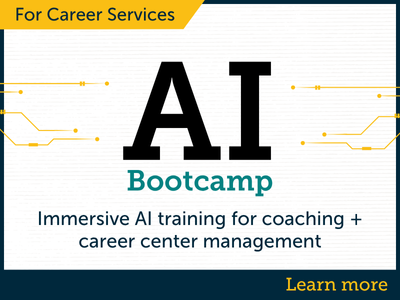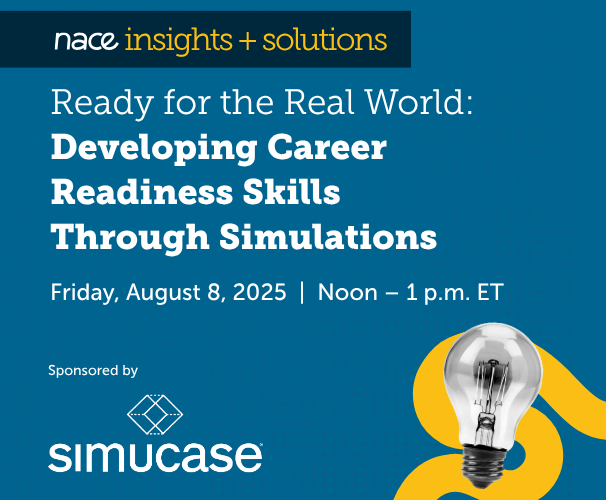Spotlight for Career Services Professionals
Last summer, the Stony Brook University Center for Remote Internships & Experiential Learning (SBU Center) was launched by the university’s career center to provide practical resources for employers during—and, eventually, after—the pandemic.
“We created the center in response to the unexpected and jarring transition to virtual work as a result of the COVID-19 global pandemic and requests from many employer partners for greater support,” explains Marianna Savoca, Ph.D., assistant vice president for career development and experiential education, in the SBU career center.
“We also know that our students and graduates will be expected to work remotely at points throughout their future careers, so this center will endure.”
The SBU Center provides a carefully curated—and current—set of resources for employers of any size seeking help in creating and managing remote internships. It has sections that address creating a remote experience, recruiting remotely, and supervising remotely, and another providing best practices in virtual work.
However, Dr. Savoca says, the key differentiator for the SBU Center is its consultation aspect. After an initial consult with the SBU Career Center’s employer engagement team, employers may be referred to individual faculty members for deeper consultation regarding, for example, curriculum connections or industry technical needs.
“In addition to our career center experts in internship development, our advisory board consists of faculty from several academic departments, including engineering, business, and health sciences, as well as experts in teaching and learning, and technology,” she says.
Development of the SBU Center was a team effort, and staff members moved as quickly as possible to put all the pieces, people, and resources in place.
“It wasn’t simply posting a website,” Dr. Savoca points out.
“[It required] envisioning the support, identifying the partners, and curating the content, all while gathering input and feedback from employers and faculty partners along the way. And we had fun ideating and working together with our employers and faculty—remotely of course.”
The SBU Center took about three months to develop and launch.
“The pandemic forced rapid change on us all, and it taught us the importance of a fast response,” Dr. Savoca says.
“Moreover, the need for a quick response allowed us to apply a design thinking approach, which means, of course, we’re still not done. The bones are there, the foundation is settled, but the curation of current content doesn’t end with the publishing of the first iteration of the SBU Center.”
During the spring term, the team expects to learn more about evolving employer needs.
“This will inform the consulting processes and future resources that we will curate,” Dr. Savoca says.
She explains that, in times of crisis and instability, extra support is always appreciated.
“We wanted to do extra to support our community,” Dr. Savoca says.
“While we created the center in response to the COVID-19 pandemic, we know that work will forever be changed and remote work will continue to be part of life in the future. Tools and techniques will change, of course, but the work endures. So will our commitment to helping, supporting, and advising employers of all sizes and industry sectors in doing this well.”







